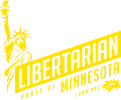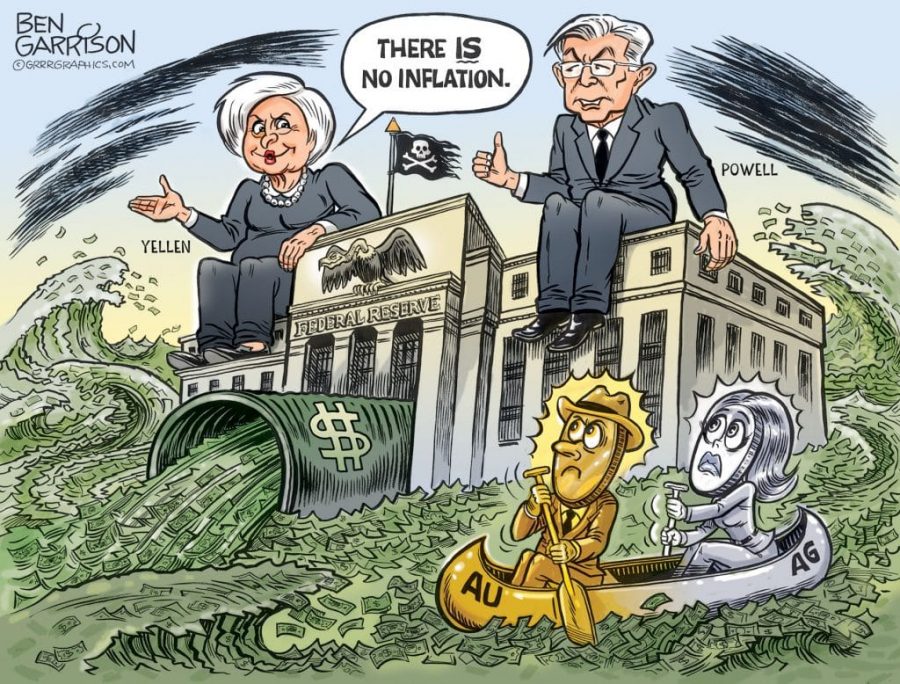It’s hard to ignore the debate raging across the country and on social media. Online chatter has only gained steam as the President of the United States has been deplatformed and Ron Paul was purportedly banned by Facebook also, later deemed a “mistake”. Many Libertarians believe Facebook, Twitter, and Amazon are privately-owned companies that can do whatever they want as long as it is legal, does this predisposition ignore much of the actual situation we find ourselves navigating in? Are these social media companies quasi-governmental agencies or are they truly private companies?
First, let’s examine the ownership structure of these corporations. Twitter, Facebook, Amazon, and Google are all publicly-owned corporations that function differently from those with solely private equity. By being a publicly-traded company worth billions of dollars, they are owned by millions upon millions of people around the world. The interests of these owners may be separate from executives running the companies. Many people remain unaware that they own these big tech companies as they contribute to the retirement funds that invest in these companies. These social media behemoths also issue debt by seeking funding for investment in the future of their business as well as stock buybacks.
This corporate debt faced the precipice of collapse at the beginning of 2020 due to massive deflationary shocks. The corporate debt also warned of collapse for the banking system and, as a result, the Federal Reserve decided that it would be in the best interest of specific individuals and corporations–including big tech companies–to indiscriminately purchase corporate debt. To fund such purchases the Federal Reserve, US Treasury, and Congress changed the rules and created an “emergency” fund of billions of dollars. By purchasing corporate debt from these companies, we as a country started the process of nationalizing these companies. Based on ownership structure and government involvement, it becomes obvious to me that these companies are not merely private, but are quasi-governmental. Therefore, the First Amendment does apply.
As a Libertarian, I would support the immediate sale of all corporate debt ownership by the Federal Reserve and US Treasury. Then the First Amendment would no longer apply to these companies. I doubt the Federal Reserve and the US Treasury will sell off the assets as doing so would cause a stock market crash. Jerome Powell, Chair of the Federal Reserve, has recently said they are ready to buy even more! If that is the case, these companies will continue to be nationalized through ownership of the government. As libertarians, we should be advocating for First Amendment protections for the users of these quasi-governmental services.
Kahler Nygard
LPMN/PolitiCOR Contributor
Sources:
https://reason.com/2021/01/11/ron-paul-says-hes-been-locked-out-of-facebook/?fbclid=IwAR1m6tfqZ-grGybpcAancZ6PLxysSw7f-NsLLTZbrs7z843LB4P4KA0luWU
https://www.federalreserve.gov/econres/notes/feds-notes/the-corporate-bond-market-crises-and-the-government-response-20201007.htm
“On Monday, March 23, for the first time in its history, the Federal Reserve, together with the Department of the Treasury, created a facility to directly purchase investment-grade corporate bonds of U.S. companies in the secondary markets. Under the SMCCF, the Federal Reserve Bank of New York would provide recourse loans to a special purpose vehicle (SPV) that would purchase eligible investment-grade corporate bonds at fair market value. Eligibility was limited to bonds with a remaining maturity of five years or less. The Department of Treasury would provide a $10 billion equity investment, and the SMCCF could leverage Treasury’s equity at up to a 10 to 1 ratio.”

